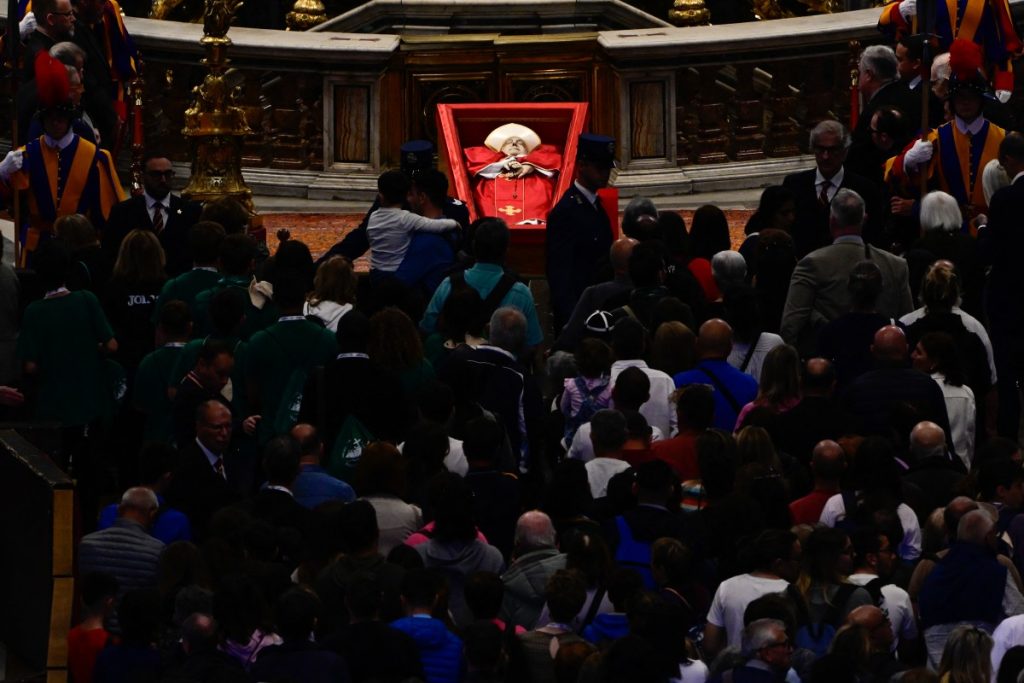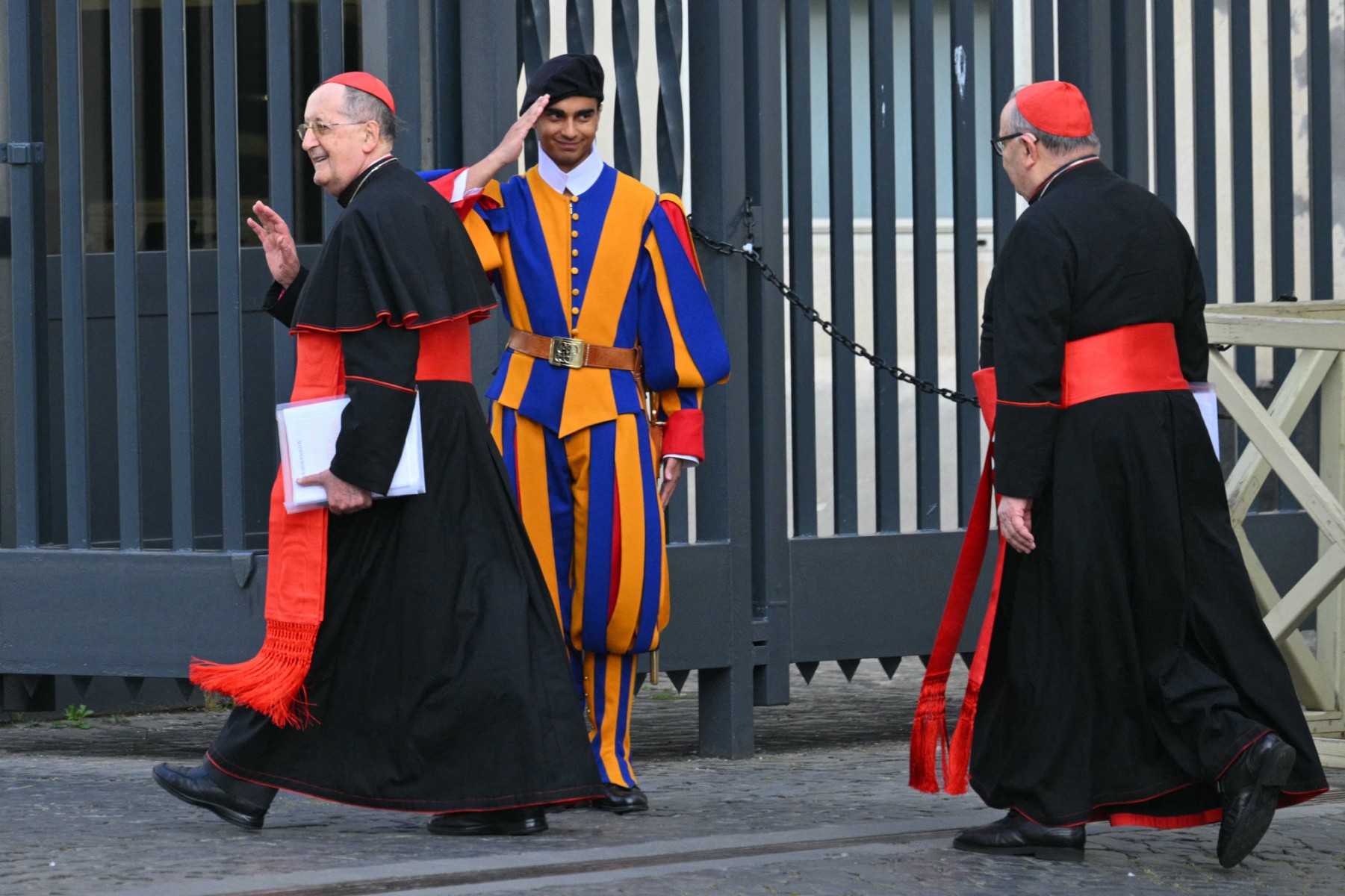Upon arriving in Rome following the death of Pope Francis, Catholic cardinals have expressed some unease about their duty to select his successor, as they begin to outline their expectations for the next leader of the Church.
The responsibility of choosing a new pope to succeed the Argentine, who passed away on Monday at the age of 88, is “beyond us yet requires us,” remarked French cardinal Jean-Marc Aveline, encapsulating the atmosphere after the mass held on Thursday evening.
On Friday morning, all cardinals currently in Rome—both those eligible to vote and those over the age limit—convened at the Vatican for their fourth meeting since Francis’ passing. These meetings, referred to as “general congregations,” allow cardinals to share perspectives and discuss the priorities for the next papacy.
In their distinctive scarlet skullcaps, cardinals are easily recognisable around the colonnades of St Peter’s Square, making them a prime target for journalists seeking hints about the next papal candidate.
“We feel very small. We have to make decisions for the whole Church, so we really need to pray for ourselves,” added Luxembourg’s Jean-Claude Hollerich, a Jesuit who was a close advisor to Francis.
The conclave is expected to commence right after the nine days of mourning set by the Holy See, which concludes on May 4, he mentioned, expressing that he approaches this event with “great hope” but also “a degree of apprehension.”

Francis, who appointed 80 per cent of the 135 electors eligible to elect his successor, focused on the Global South and remote regions distant from Rome when selecting new cardinals.
Cardinal electors—those under the age of 80—will appoint a new leader for the 1.4-billion-member Roman Catholic Church behind the closed doors of the Sistine Chapel. Set beneath Michelangelo’s frescoes, the election process is often seen as rife with intrigue and strategic manoeuvring.
However, Cardinal Francois-Xavier Bustillo, the Bishop of Ajaccio in Corsica, urged his fellow cardinals to avoid political games and to listen to one another before making their decision.
“We must avoid acting tactically or strategically,” he stated. “Our duty is to serve and act with responsibility.”


 Trending
Trending 